Mikołaj Sacha
Molecule-Edit Templates for Efficient and Accurate Retrosynthesis Prediction
Oct 11, 2023Abstract:Retrosynthesis involves determining a sequence of reactions to synthesize complex molecules from simpler precursors. As this poses a challenge in organic chemistry, machine learning has offered solutions, particularly for predicting possible reaction substrates for a given target molecule. These solutions mainly fall into template-based and template-free categories. The former is efficient but relies on a vast set of predefined reaction patterns, while the latter, though more flexible, can be computationally intensive and less interpretable. To address these issues, we introduce METRO (Molecule-Edit Templates for RetrOsynthesis), a machine-learning model that predicts reactions using minimal templates - simplified reaction patterns capturing only essential molecular changes - reducing computational overhead and achieving state-of-the-art results on standard benchmarks.
Interpretability Benchmark for Evaluating Spatial Misalignment of Prototypical Parts Explanations
Aug 16, 2023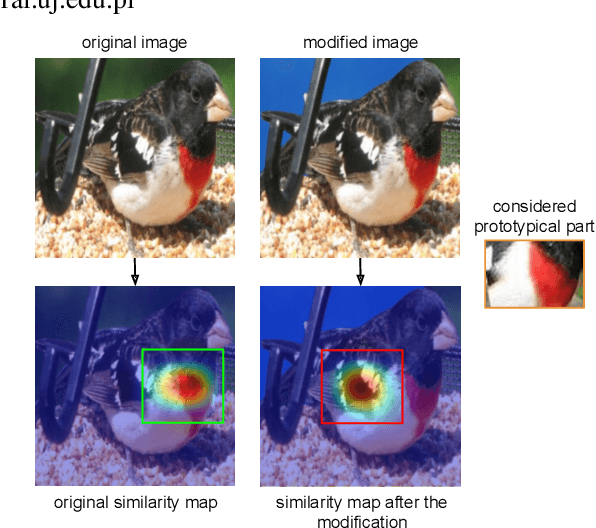
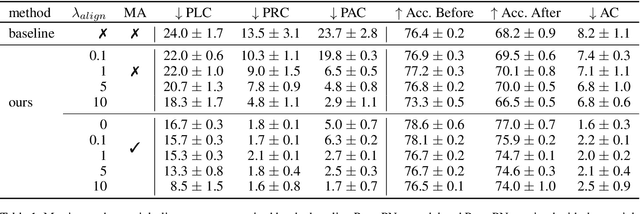
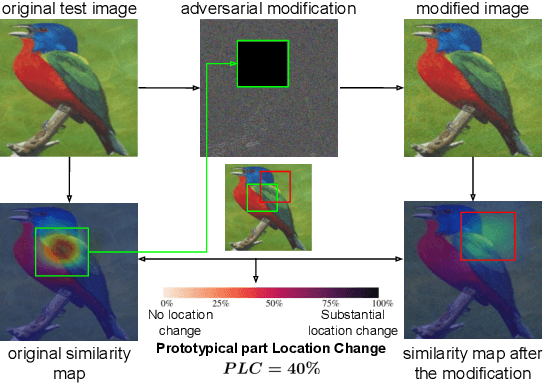

Abstract:Prototypical parts-based networks are becoming increasingly popular due to their faithful self-explanations. However, their similarity maps are calculated in the penultimate network layer. Therefore, the receptive field of the prototype activation region often depends on parts of the image outside this region, which can lead to misleading interpretations. We name this undesired behavior a spatial explanation misalignment and introduce an interpretability benchmark with a set of dedicated metrics for quantifying this phenomenon. In addition, we propose a method for misalignment compensation and apply it to existing state-of-the-art models. We show the expressiveness of our benchmark and the effectiveness of the proposed compensation methodology through extensive empirical studies.
ProtoSeg: Interpretable Semantic Segmentation with Prototypical Parts
Jan 28, 2023Abstract:We introduce ProtoSeg, a novel model for interpretable semantic image segmentation, which constructs its predictions using similar patches from the training set. To achieve accuracy comparable to baseline methods, we adapt the mechanism of prototypical parts and introduce a diversity loss function that increases the variety of prototypes within each class. We show that ProtoSeg discovers semantic concepts, in contrast to standard segmentation models. Experiments conducted on Pascal VOC and Cityscapes datasets confirm the precision and transparency of the presented method.
Molecule Edit Graph Attention Network: Modeling Chemical Reactions as Sequences of Graph Edits
Jun 27, 2020
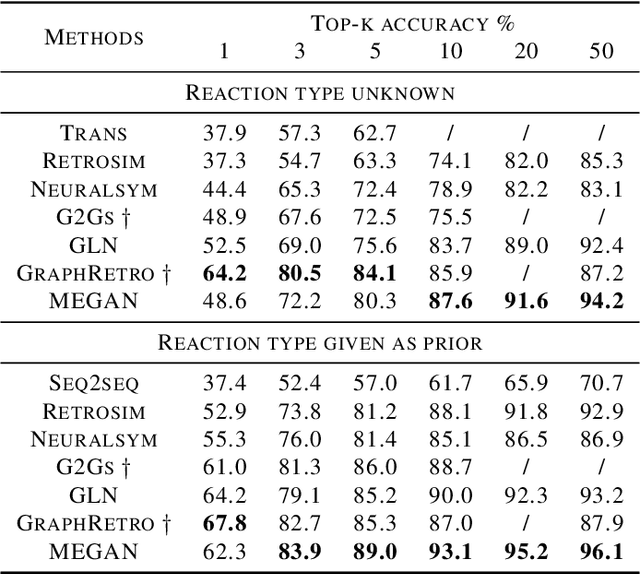

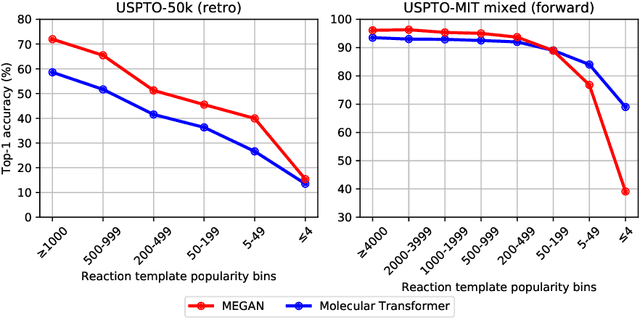
Abstract:One of the key challenges in automated synthesis planning is to generate diverse and reliable chemical reactions. Many reactions can be naturally represented using graph transformation rules referred broadly to as reaction templates. Using reaction templates enables accurate and interpretable predictions but can suffer from limited coverage of the reaction space. On the other hand, template-free methods can increase the coverage but can be prone to making trivial mistakes and are challenging to interpret. A promising idea for constructing more interpretable template-free models is to model a reaction as a sequence of graph edits of the substrates. We extend this idea to retrosynthesis and scale it up to large datasets. We propose Molecule Edit Graph Attention Network (MEGAN), a template-free neural model that encodes reaction as a sequence of graph edits. We achieve competitive performance on both retrosynthesis and forward synthesis and in particular state-of-the-art top-k accuracy for larger K values. Crucially, the latter shows excellent coverage of the reaction space of our model. In summary, MEGAN brings together the strong elements of template-free and template-based models and can be applied to both retro and forward synthesis tasks.
 Add to Chrome
Add to Chrome Add to Firefox
Add to Firefox Add to Edge
Add to Edge